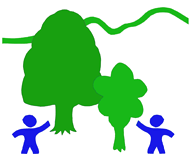History
Vision:
Here at Catcott Primary School, we aim to meet the requirements of the National Curriculum and beyond by providing a broad, balanced and exciting history curriculum which is inclusive to all children and enables children to interact with and experience history. We aim to inspire the children and develop their historical skills though learning about a range of different historical events, periods and changes and understanding how to discover as much as we can about the past both in and out of the classroom. We aim for children to understand and use the skills and knowledge needed to become historical enquirers. Furthermore, we will enable the children to develop their cross- curricular links within history to show the broad impact history has across our lives. Through this progression of skills, the children can develop their sense of chronology and how the past has shaped the world we live in today. Ultimately, we aim to provide high quality teaching to develop key characteristics for becoming an excellent historian.
Rationale:
History is taught across the school using the Key Stage History schemes of learning. These schemes build on the skills acquired as the children move through the school on their history journey. Each lesson aims for the children to answer a key question based on their specific area of learning, such as ‘How has the legend of Robin Hood developed our understanding of mediaeval justice?’ History is taught in half termly blocks meaning that each term the children will learn about a different aspect or era of history.
Our curriculum has a great emphasis on the children’s understanding of historical skills and how these are used and put into practice as historians. The children develop their understanding and implementation of
- Chronological understanding
- Historical enquiry
- Interpretation
- Organisation and communication
- Range and depth of historical knowledge
Through these skills the children can develop their understanding, using these skills across all historical topics.
From reception the children develop their understanding of the past and what has happening in the past and how this could impact our lives today. They learn about different facts and periods in history through role play and discussions enabling them to immerse themselves in their topic and develop their understanding through exploration.
In Key Stage One the children start to develop their understanding of the skills required to explore the past. They learn about significant events in history, such as The Great Fire of London, and about significant individual form the past, such as Florence Nightingale. They also develop their knowledge of local history and how historical events have shaped our lives today. The children follow an interactive and hands-on approach which enables them to discuss their interpretations of artefacts, pictures and accounts of the past and helps them to come to their own conclusions about what could have happened, how an event occurred and why and what this means for us today.
In Key Stage Two, the children further develop their understanding of the historical skills needed to better understand past events and periods and put these into practice through investigation of artefacts and newly gained knowledge. Teaching encourages the children to think about what historical skills they will need to use to explore specific events and periods such as the Roman invasion of Britain, the stone age and crime and punishment from mediaeval times to the present day. The children use their investigations to evaluate their understanding which can be through debates, written pieces such as newspaper articles or visual representations.
Across the school, the children use timelines continually through their history lessons to support their chronological awareness and be able to see and investigate different periods of history and how they link together. Children are encouraged to broaden their understanding by analysing timelines and to see what else is happening in history at the same time as their current history learning. Timelines are displayed in classroom and evolve through the school, showing the different events and periods of history studied. This encourages the children to identify how different events can affect history moving forwards.
Every classroom in the school displays the children’s understanding on working walls which build as the children develop their understanding in each lesson of their history topic. The children are encouraged to use these walls to make links to their previous lessons. Alongside this, children answer retrieval questions at the start of each lesson which supports their ability to use previous learning from within the current topic but also from other topics from previous years. Children complete a knowledge sheet at the start of each topic to think about their previous learning and how this could link to their current history topic and then revisit this at the end of their topic to see what more they have learnt.
